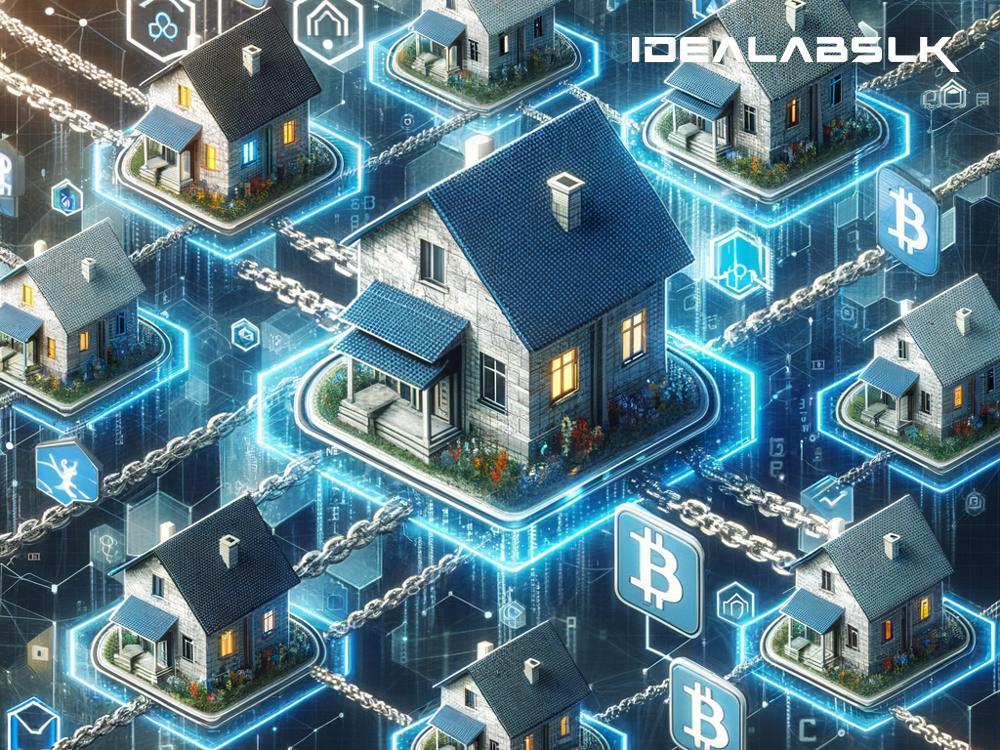Blockchain Technology: Transforming Real Estate Ownership Verification
In today's ever-evolving digital world, blockchain technology is setting a new benchmark in various sectors, significantly revolutionizing how transactions and data handling are perceived. Among these sectors, real estate emerges as a prominent field experiencing this transformative wave, particularly in ownership verification. This blog explores how blockchain is reshaping real estate ownership verification, making it more secure, transparent, and efficient than ever before.
Understanding Blockchain in Simple Terms
Before we dive into its applications in real estate, let's break down what blockchain technology essentially is. Imagine blockchain as a digital ledger or a record book that is completely open and accessible to everyone involved but is impossible to tamper with. Each "block" is a record of new transactions or data. Once a block is completed, it's added to the "chain," creating a long history of all transactions that have taken place. This technology is the backbone of cryptocurrencies like Bitcoin, but its potential extends far beyond.
The Traditional Real Estate Ownership Verification Process
Traditionally, the process of verifying real estate ownership is lengthy, manual, and fraught with inefficiencies. It typically involves a lot of paperwork, numerous visits to government offices, lawyers, and a painstaking wait for the verification of documents. The system not only tests one's patience but also leaves room for fraud, errors, and a lack of transparency, highlighting the need for a more robust solution.
How Blockchain is Changing the Game
Blockchain technology offers a groundbreaking solution to these challenges. By digitizing real estate records and storing them on a decentralized, secure, and transparent database, blockchain makes verifying property ownership seamless and straightforward. Here's how:
1. Immutable Records
Once a real estate transaction is recorded on the blockchain, it becomes immutable, meaning it cannot be altered or deleted. This permanency ensures that every recorded ownership or transaction detail is accurate and reliable, significantly reducing the chances of fraud.
2. Transparency
With blockchain, every transaction is visible to all parties involved, ensuring a high level of transparency. Buyers, sellers, and any authorized party can trace the history of property ownership and transactions, building trust in the process.
3. Efficiency
The traditional verification process can take days or even weeks. Blockchain technology, on the other hand, streamlines this process, enabling real-time verification of ownership and transactions. This efficiency not only saves time but also significantly reduces transaction costs related to manual paperwork and intermediaries.
4. Accessibility
Blockchain allows for the creation of a unified and accessible database of property records. This means that anyone, from anywhere, can verify property ownership details without the need for physical visits to offices or sifting through endless paperwork.
Real-World Applications and Future Prospects
Several countries and companies are already experimenting with blockchain for real estate transactions. For example, Sweden's land registry authority has been testing blockchain for property transactions, demonstrating the potential for government adoption. Similarly, various startups are creating blockchain platforms to facilitate real estate transactions, proving that the industry is ripe for innovation.
Looking ahead, the prospects of blockchain in real estate are boundless. We could see a future where all property transactions are conducted on blockchain platforms, making real estate ownership transparent, secure, and accessible to all. It could also pave the way for new forms of property ownership, such as fractional ownership, where multiple people own portions of a property, enabled by the trust and efficiency of blockchain.
Concluding Thoughts
The integration of blockchain technology in real estate is still in its early days, but its potential to transform ownership verification is undeniable. By making the process more secure, transparent, and efficient, blockchain can solve longstanding issues in the real estate sector. As we move forward, it will be fascinating to see how this technology continues to evolve and reshape our approach to real estate ownership and transactions. One thing is clear: the future of real estate looks bright with blockchain paving the way.

